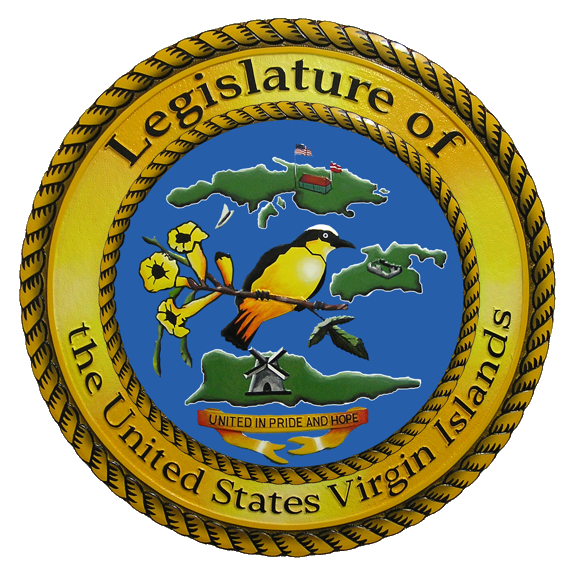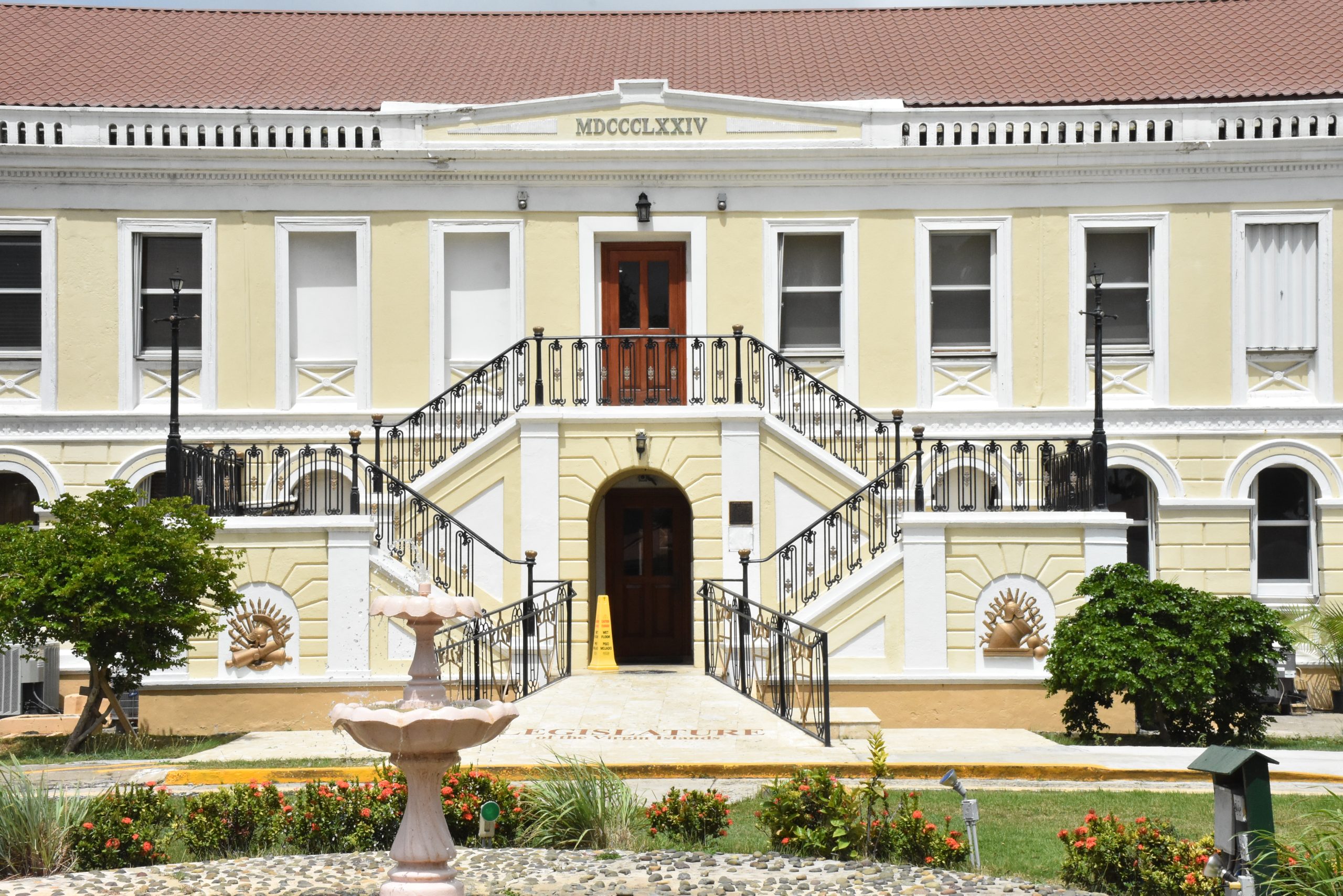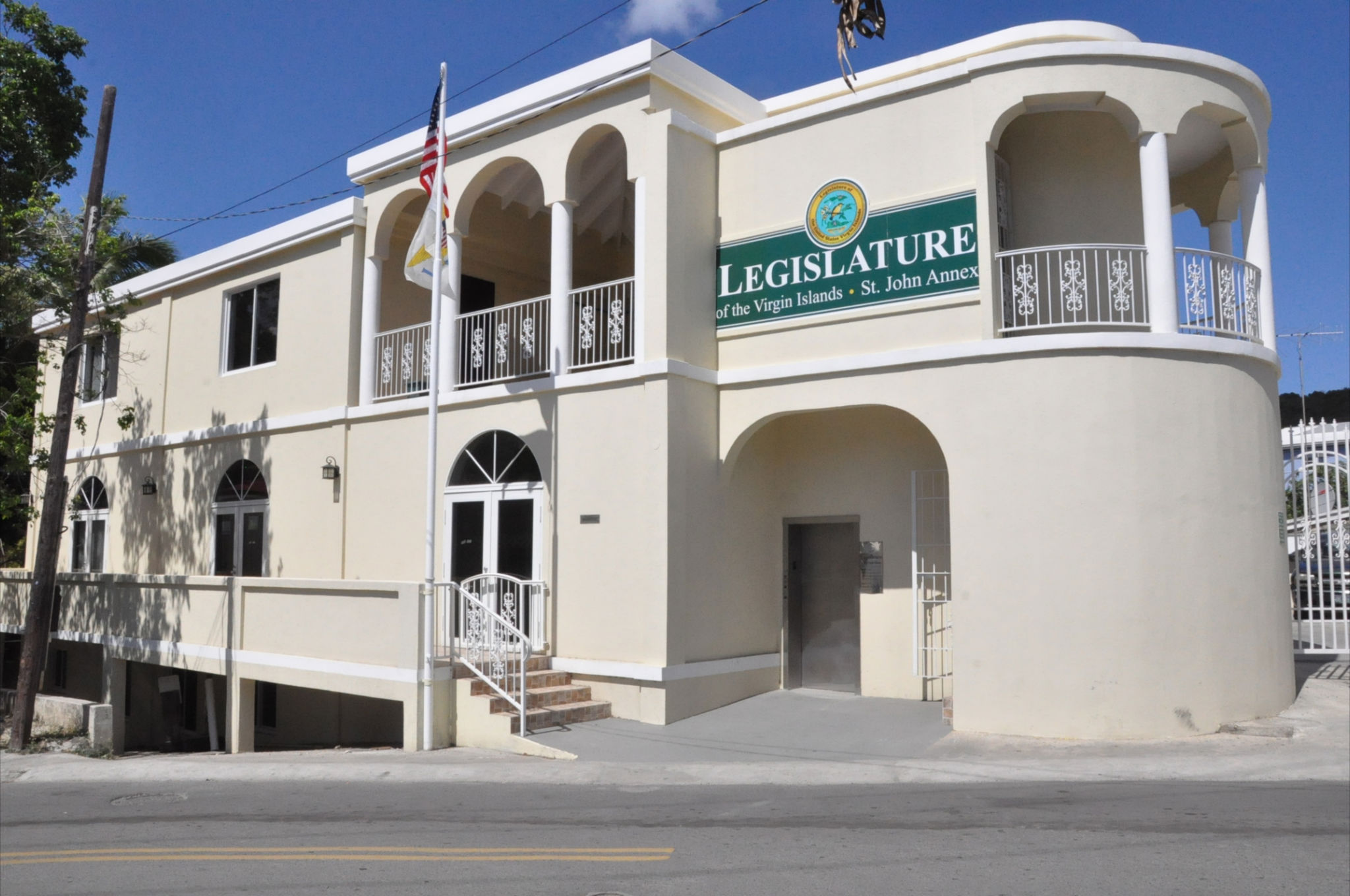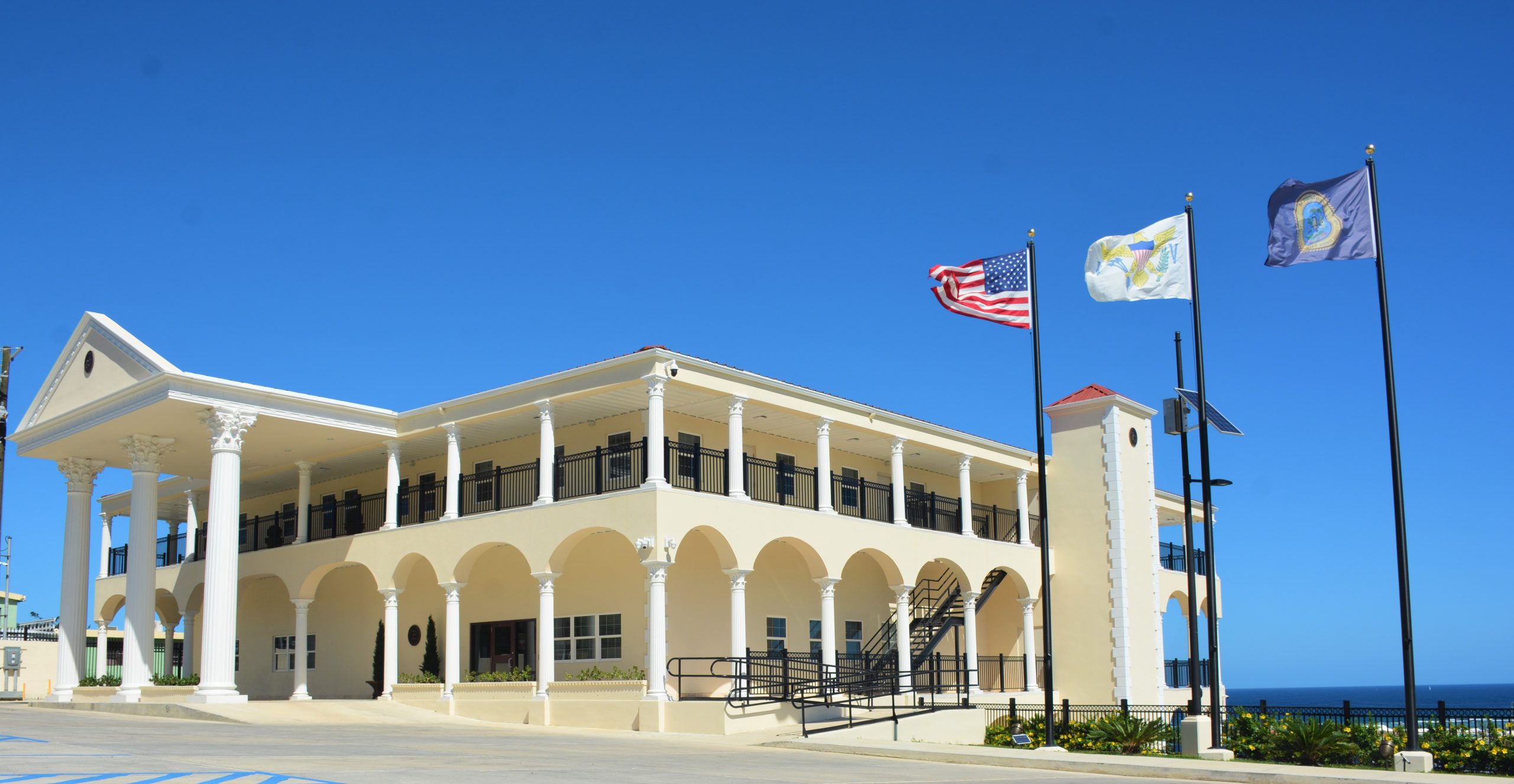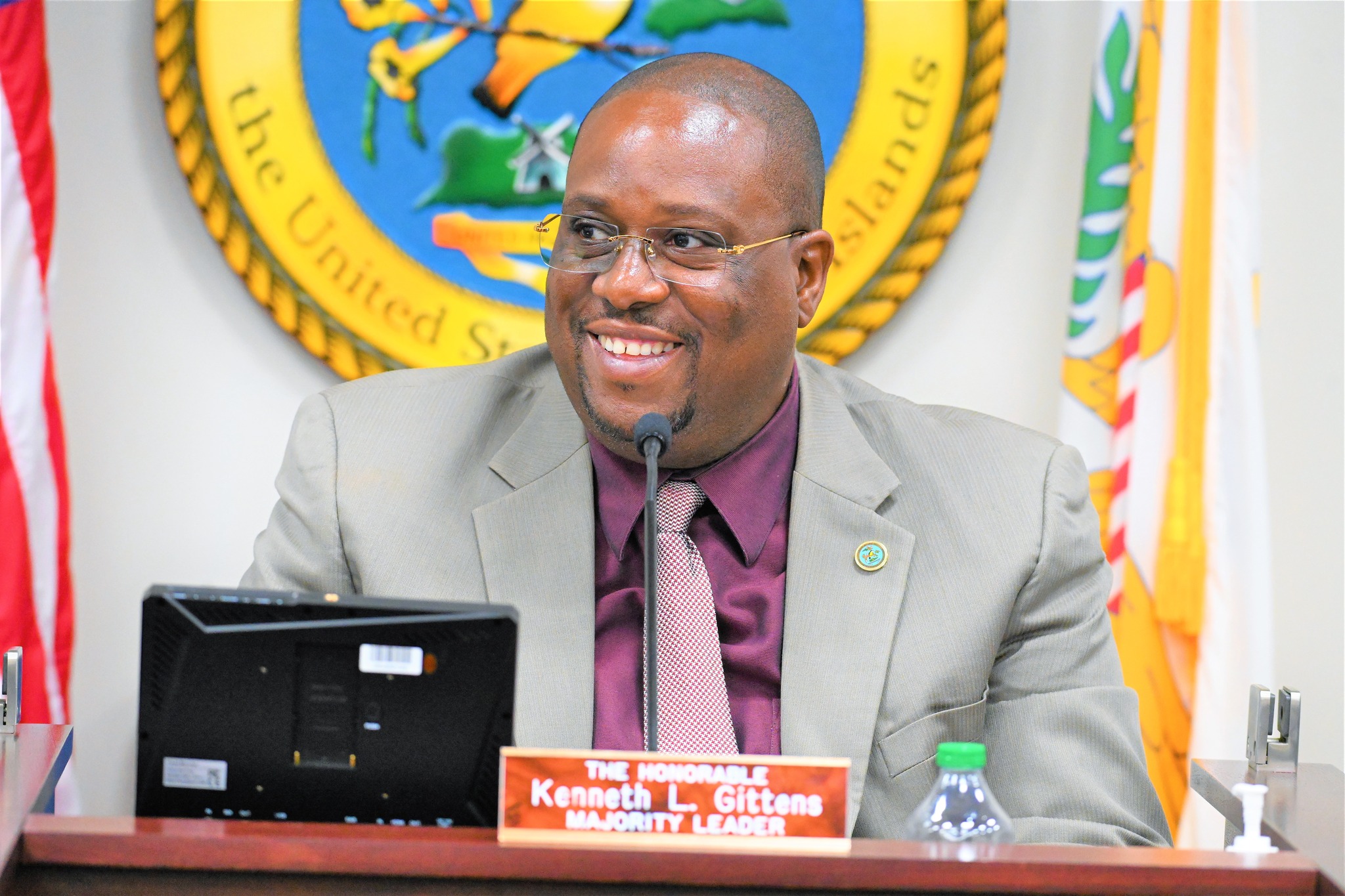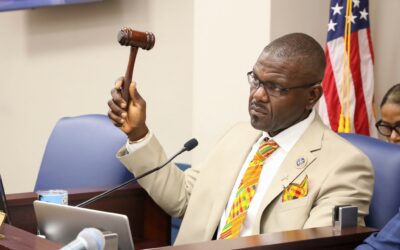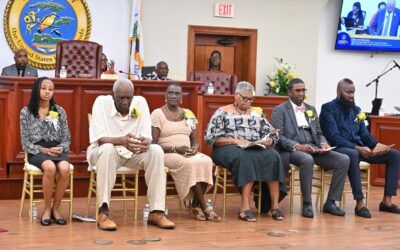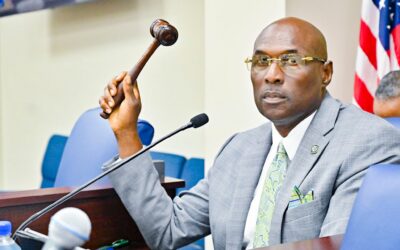The 35th Legislature of the Virgin Islands’ Committee on Homeland Security, Justice, and Public Safety, chaired by Senator Kenneth L. Gittens convened in a meeting on Monday at the Frits E. Lawaetz Legislative Conference Room. The approved item on today’s agenda will be forwarded to the Committee on Rules and Judiciary for further consideration.
In Block 1, lawmakers considered Bill No. 35-0035, An act amending Title 20, Virgin Islands Code, Part II, Chapter 39, Section 436 (b), expanding the definition of “disabled veteran†for the purposes of eligibility for a handicapped window decal. The measure was proposed by Senator Franklin D. Johnson. Testimony was read into the record from Patrick D. Farrell, the Director of the Virgin Islands Office of Veterans Affairs. Farrell stated that he and the Office of Veterans Affairs were fully in support of the proposed measure. Farrell’s testimony stated that this proposed measure would enhance the quality of life for a sizable portion of Veterans residing in the United States Virgin Islands. Leon LaFond, the Assistant Director of the Department of Motor Vehicles delivered brief remarks on the bill. Lafond stated that the Department was in support of the proposed measure, stating that it would also allow the Virgin Islands Office of Veterans Affairs the opportunity to issue license plates with the disabled veterans decal. Virgin Islands Code currently refers only to license plates with the disabled veterans decal issued by the United States Veterans Administration.
Additionally, Bill No. 35-0046, An act amending Title 20, Virgin Islands Code, Part II, Chapter 43, Subchapter I to establish parking for expectant mothers or mothers with newborns. The proposed measure was sponsored by Senator Franklin D. Johnson. Testimony was read into the record from the Virgin Islands Police Department, supporting the proposed measure. The Department’s testimony stated that the bill was an important measure and would improve the quality of life and safety of women and children in the territory. According to the Centers for Disease Control and Prevention, about one in four women experience some form of complication during pregnancy or delivery, such as high blood pressure, diabetes, infection, or hemorrhage. These conditions can make it exceedingly difficult for pregnant women to walk long distances or carry heavy loads.
In some states, such as Georgia and Oklahoma, pregnancy is considered a temporary disability, and pregnant mothers are allowed a “Disability Pass,†which is valid 30 days past their projected due date. In 2017, the General Assembly of Pennsylvania passed House Bill No. 1038, which was an act providing for the creation of special parking spaces for pregnant women and for a penalty of a violation thereof. Other states and territories have enacted similar legislation to provide for accommodation for pregnant women or new mothers. These include Hawaii, Illinois, Maryland, New Jersey, New York, Oklahoma, Texas, Utah, and Guam.
Testimony was also read into the record from Lavonne Colasuonno, a board-certified Family Nurse Practitioner. In Colasuonno’s testimony, it was mentioned that over the last decade, there has been a sharp increase in the number of retailers that have implemented “stork parking†or “expectant mother parking.†The practice has become more prominent in the United States, spreading from Europe, where it is common to reserve parking to accommodate mothers in their third trimester of pregnancy, those with disabilities, and families with small children under the age of one. These parking spaces are usually located close to the entrance of the store and are wider than the standard parking space. A wider space is needed to accommodate to open the vehicle doors as wide as possible to allow the pregnant mother to get in and out safely and comfortably, and for those with small children to get the child and or car seat in and out the car safely. Per Colasuonno’s testimony, the fees for a temporary parking placard range from free in twelve states, six dollars or less in eleven states, and Tennessee and Florida costing ten and fifteen dollars, respectively. The cost in the British Virgin Islands is ten dollars. The cost in Puerto Rico is fifteen dollars. The permit for this specially assigned parking is usually obtained through the Department of Motor Vehicles via an application for temporary disability parking privileges, accompanied by a physician’s statement.
Senator Alma Francis Heyliger voiced concern with the proposed measure, stating that she did not support the bill in its current form. Francis Heyliger stated that numbers did not support the proposed measure, stating that on average, according to her research, only two hundred babies are born in the US Virgin Islands every year. She suggested that disabled parking laws be amended instead to include pregnant mothers.
In Block 2, lawmakers considered Bill No. 35-0045, An act amending Title 5, Virgin Islands Code, Chapter 407 relating to eligibility for parole by adding section 4601a to establish Medical Parole as a basis for parole; further amending Title 5, Virgin Islands Code, Chapter 407 by adding section 4601b to establish Geriatric Parole as a basis for parole and for other related purposes. The measure was proposed by Senator Franklin D. Johnson.
Dennis Howell, the Chairman of the Virgin Islands Parole Board delivered testimony. According to Howell’s testimony, the proposed bill written can serve a dual purpose. The proposed measure would be a significant cost reduction to the Government of the Virgin Islands by reducing the cost for medical and or specialized care and prescription medicine. This bill may also reduce the cost of housing prisoners and possibly increase service capacity as the number of prisoners decreases. In Howell’s testimony, he advised the body that it is crucial that parameters are in place to monitor the activities of the parolees. Howell suggested that stipulations should be added to advise these parolees to not engage in illegal activities via social media. Howell also voiced concern over the intent of the law. Additionally, Howell stated that language should be added to address when someone commits a crime close to the age of sixty-five or after the age of sixty-five and the prisoner becomes incapacitated, and falls into the provision of 4601a and b.
Howell asked the body to consider the fact that there is overcrowding at facilities and that prison beds should be reserved for the highest risk offenders. He also urged the body to consider mental health concerns that affect the prison population as well as the safety of officers and staff. Senator Degraff applauded the intent of the bill, but voiced concern over its application. Vice Chairman Ray Fonseca stated that he could not support the proposed measure, stating that he needed to hear the opinions of those who were victims of crime of the proposed parolees. Senator Alma Francis Heyliger voiced disappointment that no one from the Bureau of Corrections was at today’s hearing to properly explain the potential cost saving measures. Howell stated that the government spent over $200,000 a year to house just one inmate with a serious medical issue.
Senators voted in the affirmative for Bill No. 35-0035. However, Bill No. 35-0046 failed in Committee. Bill No. 35-0045 was held in Committee at the call of the chair. A motion to subpoena the Director of the Bureau of Corrections Wynnie Testamark was entertained. The motion passed and will be sent to the Office of the President and the Chief Legal Counsel.
Senators present at today’s Committee hearing included Kenneth L. Gittens, Ray Fonseca, Dwane M. Degraff, Novelle E. Francis, Jr., Alma Francis Heyliger, Javan E. James, Sr., and Franklin D. Johnson.
